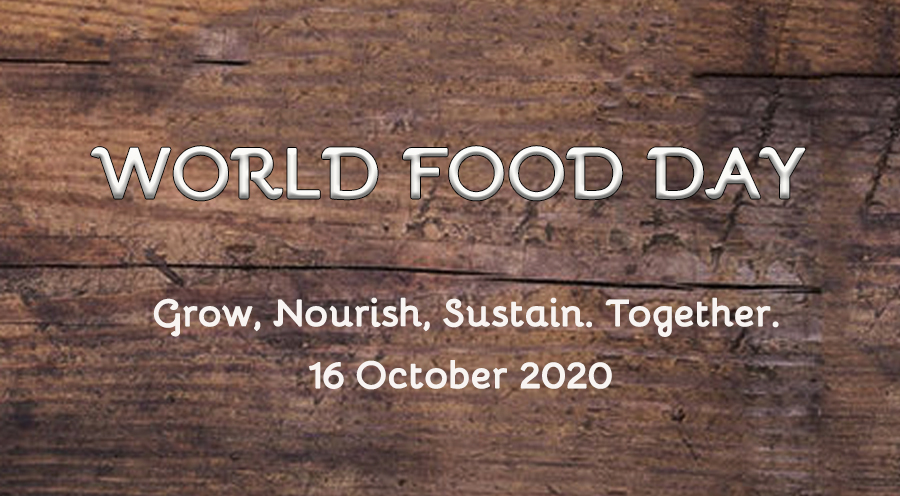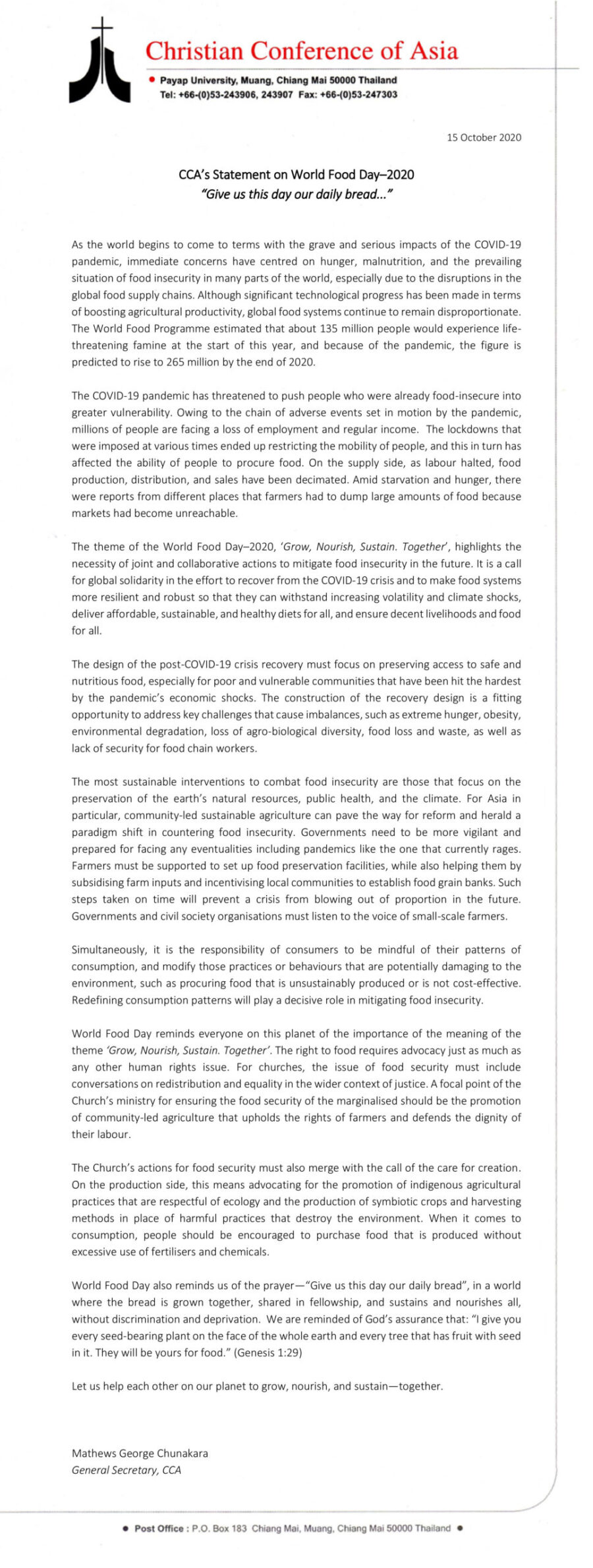The right to food requires as much advocacy as other human rights issues, says CCA General Secretary
 CHIANG MAI: In a statement issued by the Christian Conference of Asia (CCA), the General Secretary of the CCA, Dr Mathews George Chunakara stated that the theme of World Food Day–2020, 'Grow, Nourish, Sustain. Together’, highlighted the necessity of joint and collaborative actions to mitigate food insecurity and called for global solidarity in the efforts to strengthen food systems and make them resilient to volatility and shock.
CHIANG MAI: In a statement issued by the Christian Conference of Asia (CCA), the General Secretary of the CCA, Dr Mathews George Chunakara stated that the theme of World Food Day–2020, 'Grow, Nourish, Sustain. Together’, highlighted the necessity of joint and collaborative actions to mitigate food insecurity and called for global solidarity in the efforts to strengthen food systems and make them resilient to volatility and shock.
The General Secretary of the CCA stated that the right to food required advocacy just as much as any other human rights issue, and called upon churches to promote community-led agriculture and encourage sustainable and mindful consumption.
On World Food Day, which falls on 16 October, the CCA will co-host an online prayer service together with the World Council of Churches (WCC) to offer prayers and uphold the need to tide over the grave situation of food insecurity caused by the COVID-19 pandemic.
The 40-minute virtual prayer service is scheduled for 11 AM Bangkok time on 16 October 2020 (Friday).
The registration link for the prayer service is available here: https://forms.gle/wbphhNixtUTFn5or7.
More information on the virtual prayer service can be found here.
The full text of the CCA’s Statement on World Food Day–2020 can be found below: On 28 May 2020, the CCA organised a webinar on “Will COVID-19 Worsen Food Insecurity in Asia?”
On 28 May 2020, the CCA organised a webinar on “Will COVID-19 Worsen Food Insecurity in Asia?”
For the full report of the CCA webinar on food insecurity, please click here.
For the video highlights of the CCA webinar on food insecurity, please click here.










